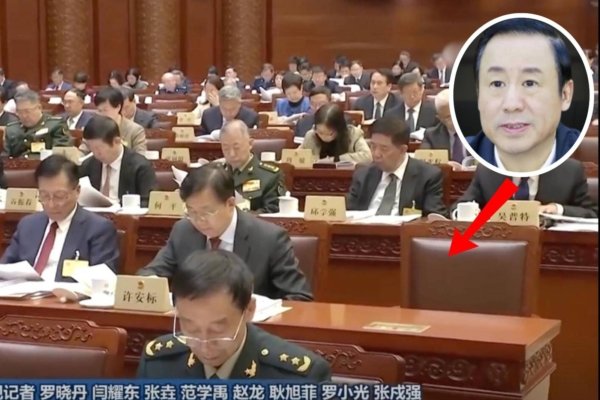In recent times, there has been a continuous purge within the Chinese Communist Party’s military-industrial complex, leading to a series of scandals involving senior party and government officials with military-industrial backgrounds. Amidst this turmoil, Xu Dazhe, a member of the National People’s Congress Standing Committee and former Communist Party Secretary of Hunan Province, has been notably absent from two consecutive committee meetings, sparking speculation about his sudden disappearance. Xu Dazhe has held various high-ranking positions in the military-industrial complex, including roles at China Aerospace Science and Technology Corporation and the Ministry of Industry and Information Technology.
The recent sessions of the 13th National People’s Congress Standing Committee were held, during which Xu Dazhe’s absence was conspicuous, as observed in footage aired by China’s state television. This marks the second time Xu Dazhe has been missing from such a significant meeting, raising questions about the reasons behind his repeated absences.
Public records indicate that Xu Dazhe, a 68-year-old native of Liuyang, Hunan Province, has a background deeply rooted in the military-industrial system. Over the years, he has served in various leadership positions within aerospace and defense-related industries, culminating in his appointment as the Director of the State Administration of Science, Technology, and Industry for National Defense. However, speculations abound concerning his recent no-shows at important legislative gatherings.
The ongoing purges within the military sector have seen the downfall of several high-ranking military officials and executives from military-industrial enterprises, including prominent figures like Wu Yansheng, Liu Shiquan, Wang Changqing, Tan Ruisong, and He Wenzhong, who have been implicated in corruption cases within the military-industrial complex.
Against this backdrop, the disappearances of key figures like Yuan Jie and Chen Guoying from prominent positions within the Chinese aerospace and defense industry have further fueled suspicions of a widespread cleanup within the sector.
It is worth noting that even local officials with close ties to the military-industrial complex have not been spared from the recent crackdown. As exemplified by the downfall of Deng Shulong, the former Secretary of the Mudanjiang Municipal Committee in Heilongjiang Province, numerous officials with a military background have come under scrutiny, highlighting the far-reaching impact of the ongoing anti-corruption campaign.
The developments surrounding Xu Dazhe’s continued absence from official meetings have led to speculation about the underlying reasons for his sudden disappearance. Observers believe that these incidences might signal a larger political reshuffling within the Chinese Communist Party, underscoring the fragility of the current political landscape and the heightened sense of crisis within the ruling party.
The recent string of scandals involving military-industrial elites handpicked by Xi Jinping could be attributed to a power struggle within the party, as various factions vie for control and influence. With the specter of corruption looming large, even the most senior officials are not immune to the pervasive culture of graft and deceit that has come to define the current political climate in China.
In conclusion, the unfolding events surrounding Xu Dazhe’s unexplained absence and the broader implications for other high-profile military-industrial figures point to a murky and tumultuous period in Chinese politics, characterized by power struggles, purges, and a deepening sense of uncertainty within the party establishment.

